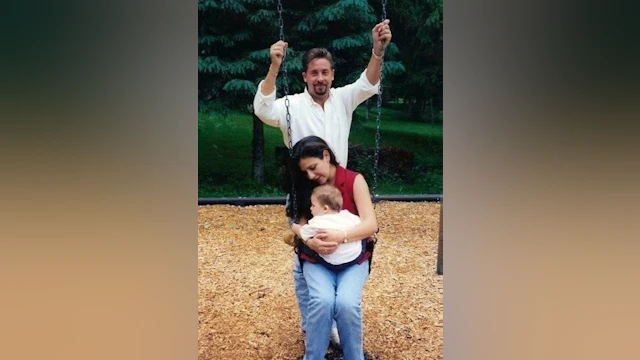Feb. 18, 2020 - On April 22nd, 2009, I lost my husband to suicide. Tony was a dedicated husband, a loving father, a loyal friend and an avid sports fan. He had a big heart and cared deeply about people and those less fortunate than him. As an insurance broker he often went beyond the scope of his work to help others. It came naturally to Tony to be there for his friends and family. But behind the big smile, Tony struggled deeply with anxiety and depression. He also often experienced bouts of insomnia, paranoia and despair.
After several years of working as a successful insurance broker, Tony lost his job just days before the holidays in 2005. The loss of employment was just one of many contributing factors to the decline of his mental health. Tony openly shared his feelings of hopelessness, and that he no longer wanted to live, with myself and our children. It was difficult to hear, and even more difficult to understand. I was grateful for the good days, and I prayed for him to make it through the bad days. I didn’t know how to help him, or how to keep him safe from himself. I encouraged him to seek professional help.
Tony’s suicide changed our lives forever. I could not accept nor comprehend what had just happened in our lives. Tony once described his mental illness as something he found difficult to share with friends, because he felt no one believed him. I struggled to understand how it could have taken him from us. I was in shock and felt numb. The night following his memorial service, I said goodnight to my youngest son, and held him as he wept and told me how much he wanted to be with his dad. The ripple effect of his father’s suicide was now moving painfully through my son. The months to follow were some of the toughest days of my life.
I felt uncomfortable speaking about my husband’s suicide. I was reluctant to share how he had died. I found myself struggling to even say the word, “suicide.” I was protective of his memory. I also wanted to avoid the insensitive comments or sense of judgment I felt I might receive from people in response. I was worried people wouldn’t understand.
Once I did begin to share my experience with others, I realized just how difficult it was for other people to know how to respond. The information was often met with the immediate words of, “I’m sorry,” and then followed by an awkward silence. People didn’t know what to say. Neither did I.
When I look back now at what was the most difficult time in my life, I realize I never could have imagined myself on the other side of grief: the hopeful side. Because we could not manage this experience alone, we sought out the help of a mental health professional. The therapeutic process we experienced as a family was emotionally exhausting, and it took a great deal of courage and strength to continue the conversation surrounding our loss to suicide. But meeting with therapists for several years, we learned to evolve with our grief and process it from a different perspective. Together, we healed and moved forward with a sense of hope towards the meaningful things in life we knew were to come.
I began a new chapter in my life and eventually remarried in 2015. Kevin embraced my loss and my brokenness with unconditional love and patience. He was respectful of Tony’s memory, never expecting me to forget, but rather being there to lift me up through the tough days. I was an open book, and Kevin was and empathetic listener. He wanted to understand the depth of my loss, and he often accompanied me to my therapy appointments. While this may not seem an ideal date to many people, it was his way of showing me love and support.
Eight years after losing Tony to suicide, I felt prompted to work with an organization that was focused on suicide prevention. Volunteering with the American Foundation for Suicide Prevention helped me gain the confidence I needed to share my story. From participating in educational programs like Talk Saves Lives, to providing support and resources to other loss survivors, to advocating in Washington D.C. in support of smart suicide prevention legislation, AFSP gave my story a voice.
These experiences helped me articulate the conversation around mental health with family, friends and most importantly, my children.
I now know what to say.
